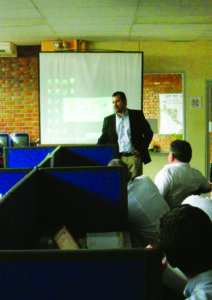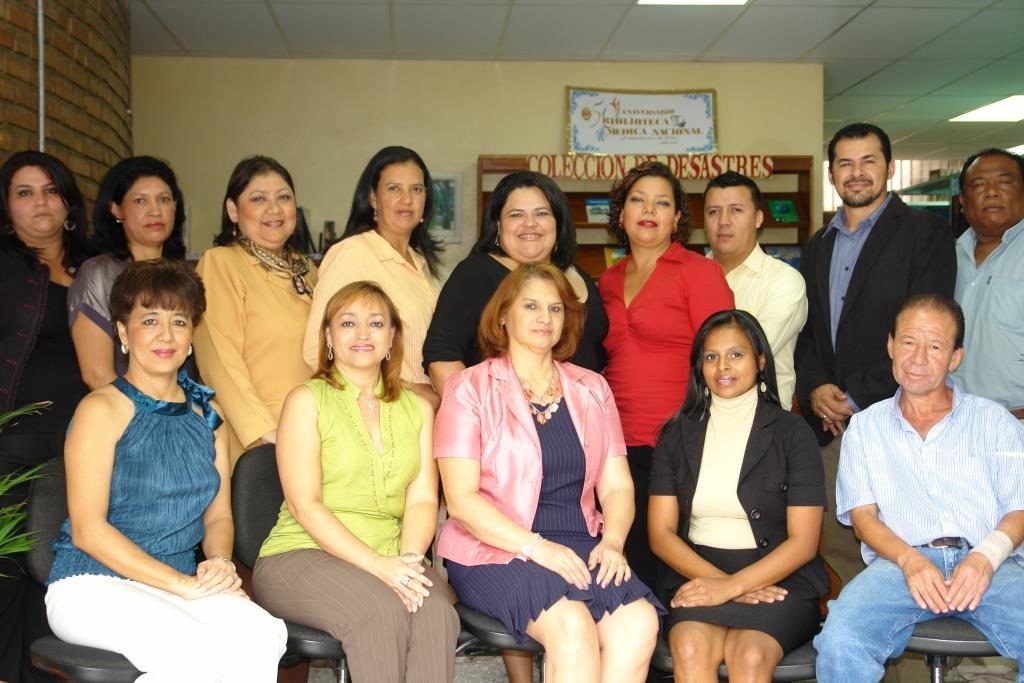Designing a one-stop medical library
Tech-savvy Honduran medical librarian creates a one-stop virtual medical library, resolving security issues blocking access.

of Honduras’ National Medical Library, Honduras.
Ovidio Padilla knows the true value of virtual learning and research. Since joining Honduras’ National Medical Library in 2004, he has used every opportunity to expose scientists and researchers to the benefits of Research4Life. The Medical Library has also assumed the role of HINARI programme trainer in Honduras in recognition of the excellent information resources available to the health sector. Ovidio develops training as a daily service to anyone in the institution.
“I very much enjoy my responsibilities, which focus on developing search techniques to provide alternatives to traditional offline research,” explains Ovidio, “For a few years now, we have used the Moodle platform for building Virtual Classroom Training at our institution, providing security controlled Virtual Campus access to mobile devices for students and teachers as they continue in their university career.”
Ovidio became aware of Research4Life through collaboration with the PanAmerican Health Organization (PAHO) and other information centres throughout the region. He soon realised the impact that access has on learning. Both Ovidio’s technical savvy and passion for Research4Life have proven to be highly valuable qualities for his institution.
“Before I joined, the University found it almost impossible to provide online updated information services to its students, researchers and faculty. Furthermore, periodicals were too expensive and the institutions budget was extremely limited. The situation was very bleak: limited, almost nonexistent resources combined with the reality of having no internal tradition of consulting information resources online.”
Prior to Ovidio’s appointment, the university also had major structural issues with their online network, using complicated methods to maintain security and access. “Through my technical expertise, I could see the solution was clear, yet simple: to create a ‘virtual’ mask to provide a broader and easier entry point for our faculty and students, while bringing vital access to HINARI through controlled classroom management (a virtual medical library),” he explains, “In this way, users enter and are provided access without seeing the password which avoids problems of illegal dissemination.” Today, students, teachers and researchers regularly visit the Medical Library, which provides access to dynamic databases and electronic journals through their Virtual Library and Virtual Newspaper programmes. Ovidio is dedicated to building the University’s capacity and training programme. From the moment they enter the University, all students in Health-related disciplines receive Research4Life training. Scientific researchers, students, teachers and administrative staff also receive continuous support and guidance in access and online research techniques. Ovidio organizes workshops and strategically tracks the training and ongoing support provided by the Medical Library. His department also provides updates on the latest HINARI resources.
Ovidio has witnessed the impact of his efforts.
“The library now has a wide range of resources and users use these as their main source of information. The amount of scientific research in our institution has significantly increased the interest of the University authorities,” he says, “Although we would like to see more Spanish language resources available in Research4Life, students, researchers and faculty alike are providing inputs to national research material for ongoing participation in international fora. The University authorities now understand the necessity of continuing to encourage and assist teachers in online research techniques as well as the benefits of Research4Life.”

Ovidio believes that access to these important resources has significantly increased the quality and quantity of research at his university, which now ranks number 1 in the country. They have increased their scientific publications from 37 in 2009 to 90 in 2013 and of these publications, 66% are in the area of health. In 2004, they established the Journal of the Faculty of Medical Sciences which was re-launched in 2012 as the Latin American Literature in Health Sciences journal (LILACS). The Medical Library plays a prominent role on the journal’s editorial board and provides training for literature reviews using HINARI resources. Ovidio, who aspires to earn a PhD in Information Management Technologies, is known in his institution as a powerful advocate of Research4Life.
“HINARI is most used in the National Medical Library but we recently established strategic partnerships with the University of Agriculture,” he says, “They, too, have become empowered by using AGORA and OARE and they too will see the immense benefits of this incredible opportunity given to us by leading publishers and other partners from around the globe. I am confident that the resources offered by Research4Life continue to be a permanent reference in the research and publications in our forward-thinking institution”.
This story is part of the « Unsung Heroes: Stories from the Library » case study collection. Read more stories from Research4Life users.





